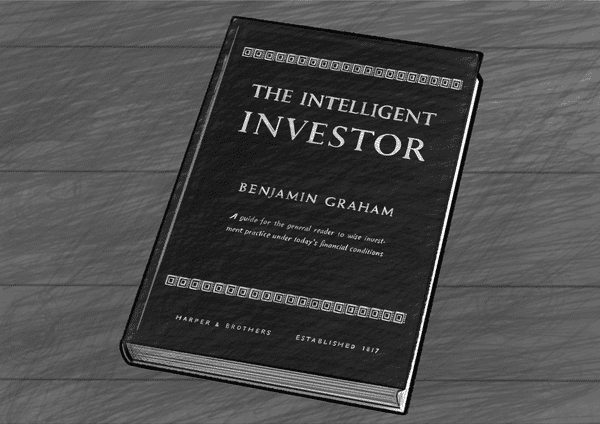BRRRR Real Estate Investing Breakdown
18 July 2022

Hi, The Investor’s Podcast Network Community!
Welcome back to We Study Markets! 💰
Hope everyone had a great weekend and is ready to get back after it!
It’s a big week for many companies, including Bank of America, Tesla, and Netflix, as they report earnings in the coming days. We’ll also get a peak into the health of the real estate market with the announcement of June home sales.
Today, we’ll do a further breakdown on the BRRRR real estate strategy and learn some metrics you need to know for its success, discuss some tips from investor Walter Schloss, and hear about what some bank CEO’s have to say about the economy, with much more, in just 5 minutes to read.
Get curious and read on!
Get smarter about valuing businesses in just a few minutes each week.
Get the weekly email that makes understanding intrinsic value
easy and enjoyable, for free.
IN THE NEWS
📈 Netflix earnings and what big bank CEO’s are thinking (CNN)
Explained:
- Big banks kicked off earnings season last week, and while many wanted to talk about net interest margins and loan loss reserves, everyone else wanted to hear their thoughts on the state of the economy and where they see the US heading.
- Netflix will announce earnings Tuesday. It is a pivotal time in the history of the 25-year-old company, which is having a very difficult year with the stock down 70% after an April announcement that they lost subscribers. As subscriber growth is tailing off, Netflix hopes advertising will be a savior and boost earnings.
What to know:
- Morgan Stanley’s CEO, James Gorman, says we might head into some sort of recession in the U.S., but doesn’t expect it to be deep and dramatic. First Republic Bank’s CEO said we are likely in the second or third inning of what it will take to get inflation under control. Citigroup’s Jane Fraser mentioned consumer spending is above pre-Covid levels, and the job market remains very tight as reasons to think the U.S. is not on the cusp of recession. This just reiterates that no one knows what will happen for sure.
- Netflix has predicted they will lose another 2 million subscribers. If Tuesday’s earnings announcement states losses higher than that, you can expect the market to continue to beat down on the stock, which is currently trading at $190 per share.
🏠 Housing Market Prices Dip (Redfin)
Explained:
- Buyers seem to be reaching their limit on what they’ll pay for homes as the median sale price of US homes came down 0.7% during the four weeks ending July 10. Sellers asking prices have also come down 3% since their May peak. “Inflation and high mortgage rates are taking a bite out of homebuyer budgets,” says Redfin chief economist Daryl Fairweather.
- Fewer people can afford the increase that’s been seen in housing since the pandemic. Consumers are also dealing with increased food, transportation, and energy costs. Competition for homes is down, supply has been building up, and prices can be expected to modestly drop for at least the next several months.
What to know:
- The median home sale price was $393,449, while the monthly mortgage payment on the median asking price hit $2,387 based on a 5.51% interest rate. The average payment was up an astonishing 44% from $1,663 a year earlier when mortgage rates were 2.88%.
- Even with higher rates and inflation, 51% of all homes sold above list price, down from 54% a year ago. The combined effect of high inflation and rising interest rates will slow down the housing market, and prices will continue to cool as inventory builds up.
 China misses GDP growth expectations (CNBC)
China misses GDP growth expectations (CNBC)
Explained:
- China managed to produce just 0.4% growth in GDP in the second quarter, which missed analysts’ forecasts of 1% growth. The government has a full-year target of 5.5% growth which is looking “almost impossible,” according to Bruce Pang, the chief China economist at Jones Lang LaSalle. China’s real estate market, investments, and exports are the main engines of economic growth for the country, and all three sectors are facing economic headwinds.
- According to Pang, “China’s economy has bottomed out but it is not out of the woods yet.” Several investment banks have downgraded China’s growth prospects for this year.
What to know:
- The Chinese economy has been burdened by the impact of the country’s zero-tolerance policy toward Covid-19. The effects of shutting down major manufacturing and trade hubs, including Shanghai, have hampered economic growth. Businesses have slowed new investment, fearful of future lockdowns, and consumers are reluctant to spend as confidence in income growth wanes.
- A slowing Chinese economy and rising social tensions could prove to be a thorn in the side of President Xi Jinping, who is trying to keep his role for a third term.
SPONSORED BY
How do you make sure that you are investing with a “good” operator?
Dan Handford and his wife are currently invested in 54 different passive real estate syndications with 16 different operators in 10,000+ doors.
They use this exact list when deciding whether or not to invest with a particular group. Get access to the “7 Red Flags for Passive Real Estate Investing” to be confident in your next investment!
DIVE DEEPER: Knowing Your Numbers in the BRRRR Strategy
The July 8th edition of We Study Markets, discussed how the BRRRR strategy could produce solid cash flows and build a sizable real estate portfolio over time. It can also allow investors to leave zero capital in a deal and provide infinite cash on cash returns if properly financed and executed. As we learned earlier, BRRRR stands for Buy, Rehab, Rent, Refinance, and Repeat. Today, we’ll take a deeper dive into a few of the core metrics you need to know early on in the strategy that will increase your odds of success.
As with any investment, half the battle is ensuring you buy at the right price. When making offers on potential properties, the main thing that should guide your decision-making process is the numbers. If the numbers don’t make sense, don’t do the deal. Assuming you’ve lined up financing, here are a few key calculations you’ll need to know:
After Repair Value (ARV)
The ARV is the value of a property after it’s been improved or renovated. The ARV is determined by referencing nearby comparable properties (comps) with a similar size, age, condition, and style.
Most real estate investors like to compare 3 to 6 properties in a nearby location that have sold within the past 90 days to get an accurate number for the ARV. To be precise, you can determine the average price per square foot on your comps and then multiply that price by the total number of square feet in your property under consideration. For example, if the average price per square foot in the neighborhood was $155 and your potential investment property is 1,200 square feet, your ARV would be $186,000.
Calculating Repairs
Once you’ve determined the ARV, you now need to calculate the estimated cost of the repairs needed to bring it in line with your comps. Having an accurate idea of the repair costs is essential to the success of the BRRRR Strategy. Investors should include every cost that will be incurred during the renovation, including structural improvements (like a new roof or new HVAC system), cosmetic improvements (like new paint, lighting, or cabinets), and holding costs (like utilities, taxes, and insurance). Get help from a general contractor, realtor, or friendly real estate investor who has done what you’re trying to do to help with calculating the repair costs if you don’t have the experience or knowledge.
Determining the Offer Price from the ARV
Once you’ve calculated the ARV and accurately estimated the cost of repairs, you are now in a position to determine your maximum offer price when purchasing the property. The standard formula most rehabbers use to determine their maximum offer price is 70% of ARV minus the total costs of repairs. For example, if our ARV is still $186,000 and our estimated repair cost is $35,000, our maximum offer price will be: (70% x $186,000) – $35,000 = $95,200. We would be happy with anything below this number that the seller would accept. Anything above it, and we go on to look at other deals.
The 1% Rule
The 1% rule is useful in determining if a potential real estate deal, including a BRRRR deal, makes sense to pursue based on the projected rent you’ll collect. Let’s say our property will generate $1,500/month in rental income and our offer price ($95,200) plus our total cost of repairs ($35,000) is $130,200. To meet the 1% rule, we want our monthly rent to be equal to, or no less than, 1% of the purchase price plus renovation costs. In this case, $1,500/$130,200 is 1.15%, so that this deal would meet the 1% rule criteria.
The Takeaway?
Is the BRRRR Strategy right for you? Is building a real estate portfolio part of your plan for wealth creation? Knowing oneself is important in investing. Do you have the patience and determination to see a rehab through to completion? Do you have the skills and contacts to manage a renovation?
There are many moving parts in the BRRRR Strategy, and it is not for everyone. If real estate is part of the equation for your financial plan, but the details of BRRRR investing seem beyond your comfort level, you may want to consider making your life simple and look into PassiveInvesting.com.
QUOTE OF THE DAY
“Don’t buy on tips or for a quick move. Don’t sell on bad news.”
-Walter Schloss
Walter Schloss was one of the investing greats admired by Warren Buffett and also studied under Ben Graham. Like many successful investors, Schloss had a strict list of rules he followed throughout his investment career, which allowed him to compound his investor’s money at an average of 15.5% per year. $10,000 invested with Mr. Schloss in 1955 would have grown to $5,388,000 by the 2000, while the same amount invested in the S&P 500 would only have accumulated to $729,000. It pays to pick the right horse!
Schloss was an independent thinker and invested for a small number of clients who believed in his value-oriented investment philosophy. He was largely diversified in his portfolio and often held over 100 different positions. According to Buffett, he bought companies that were selling below their book value, and “that’s all he did.”
Meaning
Walter Schloss was a quintessential value investor. In 1994, he penned 16 investing rules which we all would be wise to clone. The above quote indicates he probably would have ignored nearly all Mad Money recommendations and tuned out the latest trending Twitter hot stock.
Another key trait he possessed was the ability to keep unemotional and non-reactive during times of a sharp market downturn or bad news from one of his holdings. He knew he had bought something for 50 cents that was worth one dollar, and it was only a matter of time until everyone else realized the same. He had a strong conviction on every one of his holdings based on his understanding of the company’s value As such, he never sold on bad news and often added to his positions during a downturn.
It’s prudent to cut out unproductive investment behavior. How often do we let others do our thinking and buy on tips? How often do we panic during times like today when the market is dropping, bad news abounds, and we sell based on our emotions? These are habits that can be eliminated and will lead to greater investing results.
WHO IS MR. MARKET?

The concept of Mr. Market derives from Chapter 8 of Ben Graham’s famous book on value investing, The Intelligent Investor. Mr. Market is an allegory Graham created to describe what he thought were contradictory and irrational traits of the stock market and the risks of following groupthink. Imagine you have a business partner named Mr. Market, and this fellow is a volatile manic-depressive. Somedays, he estimates the value of the business very pessimistically. Other days, he is wildly optimistic as to its worth. You are always free to decline your partner’s offer price since you know he’s irrational, and his price will change with the vagaries of his mood.
What to know
Graham and his students felt that investors are better off assessing the value of a company through fundamental analysis and then deciding if the future prospects warrant a purchase or sale of the security. Since Mr. Market is so moody, he will offer opportunities for patient investors to enter and exit at favorable times.
When Mr. Market gets too pessimistic, valuations on good stocks will be favorable, allowing investors to purchase them at a reasonable price relative to their future prospects. When Mr. Market is overly optimistic, it may be a good time to sell a stock as the valuation may be unjustified.
What kind of mood is Mr. Market in today? He’s always bi-polar, but how will his mood swing in the coming months? Let us know your thoughts by replying to this email. We’d love to hear from you!
Learn more about The Intelligent Investor and other key concepts of Ben Graham’s value investing here.
SEE YOU NEXT TIME!

That’s it for today on We Study Markets!
If you enjoyed the newsletter, keep an eye on your inbox for them on weekdays around 12 pm EST, and if you have any feedback or topics you’d like us to discuss, simply respond to this email.
We’ll see you back here again – same place, same time 😉

If you enjoy our industry leading podcasts like We Study Billionaires, Bitcoin Fundamentals, and Richer, Wiser, Happier, you can subscribe to listen our entire catalog of these shows and episodes, without ads, through Apple Podcasts for just $2.99/month.





